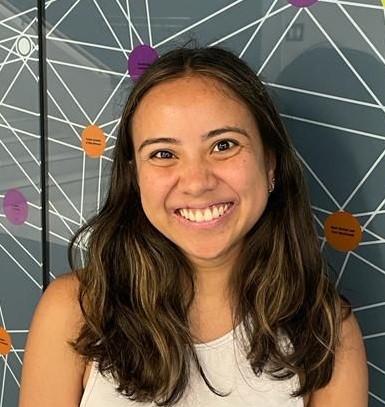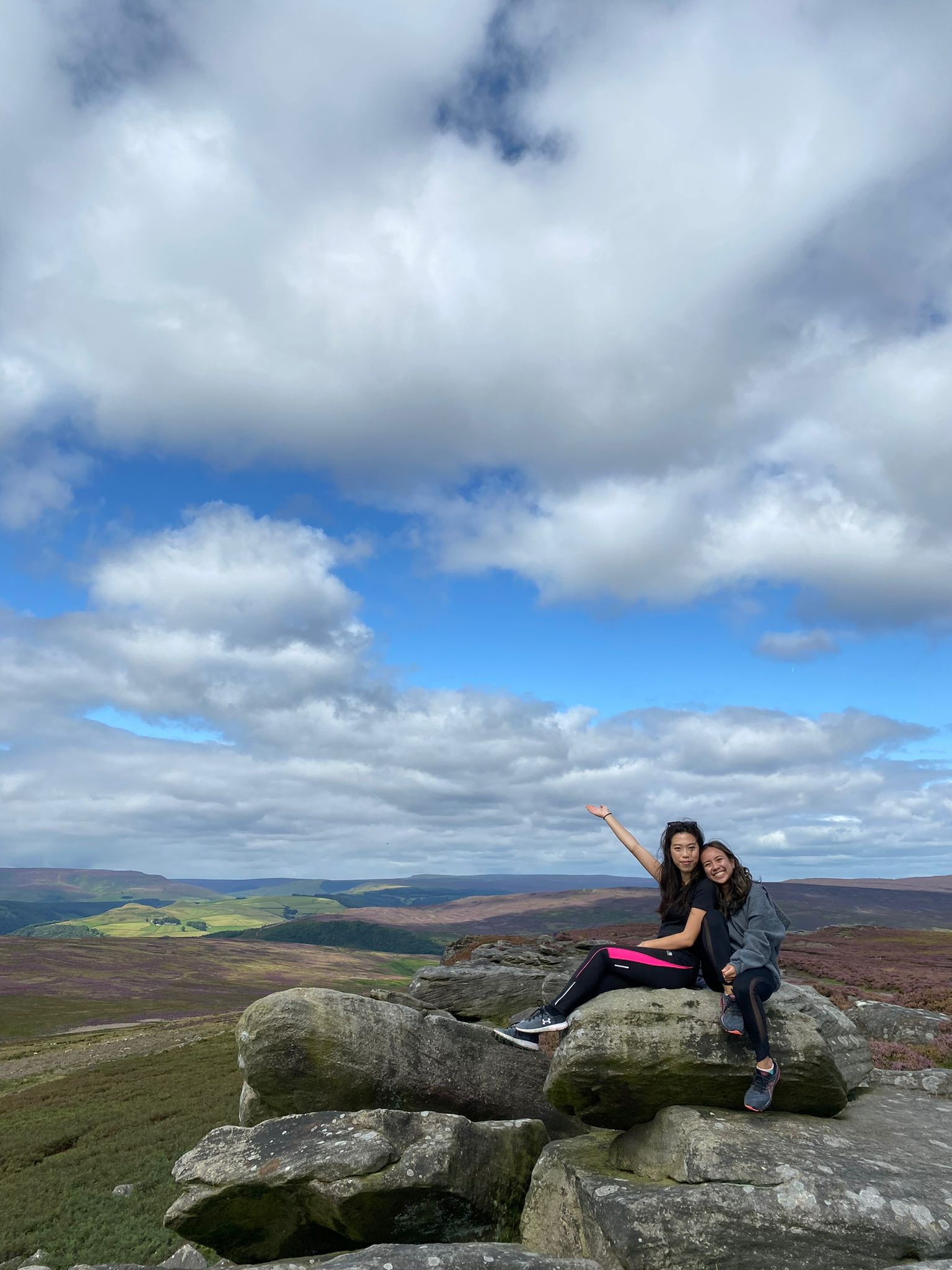
As an undergraduate, Alyssa Ho, MS, found herself drawn to neuroscience both by her intellectual desire to understand the workings of the brain and by her compassion for the patients she saw living with neurodegenerative disease while she volunteered at a local hospice.
Ho pursued this passion through her graduate studies at McGill University in the Anphy Lab of Birgit Frauscher, MD, PhD, coming to Duke with Frauscher this summer.
For this week’s Spotlight interview, Ho talks to us about her work helping to coordinate and conduct epilepsy research in the Anphy Lab. She talks about how the research she conducted for her master’s thesis helps us better understand the connection between epilepsy and sleep. Ho also talks about bouldering and exploring her new home in the triangle when she’s not at Duke.
What are your current responsibilities within the Anphy Lab and Duke Neurology Department? What does a typical day look like for you?
Within the Anphy Lab and Duke Neurology Department, my role as a research associate encompasses a wide range of responsibilities aimed at ensuring the smooth functioning of our research projects. The day-to-day tasks vary, but they typically involve coordinating studies by liaising between the clinical, research and university entities, recruiting study participants, managing and analyzing data, and general housekeeping for the lab such as scheduling meetings, and helping new students with their onboarding.
How and when did you first get interested in neurology? What interests you in particular about sleep and epilepsy?
I feel like I have always been fascinated with the workings of the human brain, and that passion has really shaped my academic journey. During my undergraduate studies I specialized in neuroscience, and at the same time I was volunteering at a hospice, where many of the patients I was working with had neurodegenerative disorders. These experiences sparked my interest in clinical neuroscience research.
Epilepsy in particular is really interesting for me, as it represents a disruption of the normal neural networks and pathways. Additionally, what surprised me is the comorbidity of epilepsy with various sleep disorders, and that different sleep states can have different effects on epileptic activity.
You were the first author of a recent Epilepsia article examining how rapid eye movement sleep differently affects interictal epileptic activity. What were the main findings of the study, and how will that help us better understand or treat epilepsy?
Our study was based on the work I did for my master’s degree in the integrated neuroscience program at McGill University under Prof. Birgit Frauscher. Our main findings were that interictal epileptic activity is more suppressed during REM sleep relative to wakefulness, particularly in neocortical areas, as well as in the second half of the night.
We also did not find any novel regions showing interictal epileptic activity in REM sleep compared to NREM or wakefulness. This finding carries significant implications, especially in the context of incorporating sleep stages into presurgical evaluations. Particularly, it highlights the importance of considering sleep stage interactions and the potential influences of anatomical locations when using interictal epileptic activity to define the epileptic focus.
If you could have any job in the world, what would it be?
If I could have any job in the world, I would love to combine my clinical and academic interests to pursue a career as a clinician scientist in the field of neuroscience.
What do you enjoy most about your work?
I really enjoy the diverse tasks that this job involves. Tasks vary from day to day, and there is so much room for personal and professional growth. I also enjoy the collaborative aspect of this job, working and coordinating with different teams, and also the opportunities for direct interactions with the research participants.
What’s the hardest part of your job?
We only just moved down to Duke around three months ago, so I think the hardest part so far has been getting used to things in a new environment, and trying to get our projects off the ground. However, we seem to be making great progress, and everyone at Duke has been so nice and so helpful!
What other passions or hobbies do you have outside of Duke?
Outside of work, I enjoy living an active lifestyle. I picked up bouldering a little less than a year ago with my friends in Montreal and I really enjoyed it. I am currently trying to get the Anphy Lab at Duke into it as well. With the people in the lab, we also enjoy being outside and going on hikes during the weekends.
